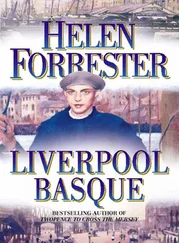James Forrester - The Roots of Betrayal
Здесь есть возможность читать онлайн «James Forrester - The Roots of Betrayal» весь текст электронной книги совершенно бесплатно (целиком полную версию без сокращений). В некоторых случаях можно слушать аудио, скачать через торрент в формате fb2 и присутствует краткое содержание. Жанр: Исторический детектив, на английском языке. Описание произведения, (предисловие) а так же отзывы посетителей доступны на портале библиотеки ЛибКат.
- Название:The Roots of Betrayal
- Автор:
- Жанр:
- Год:неизвестен
- ISBN:нет данных
- Рейтинг книги:5 / 5. Голосов: 1
-
Избранное:Добавить в избранное
- Отзывы:
-
Ваша оценка:
- 100
- 1
- 2
- 3
- 4
- 5
The Roots of Betrayal: краткое содержание, описание и аннотация
Предлагаем к чтению аннотацию, описание, краткое содержание или предисловие (зависит от того, что написал сам автор книги «The Roots of Betrayal»). Если вы не нашли необходимую информацию о книге — напишите в комментариях, мы постараемся отыскать её.
The Roots of Betrayal — читать онлайн бесплатно полную книгу (весь текст) целиком
Ниже представлен текст книги, разбитый по страницам. Система сохранения места последней прочитанной страницы, позволяет с удобством читать онлайн бесплатно книгу «The Roots of Betrayal», без необходимости каждый раз заново искать на чём Вы остановились. Поставьте закладку, и сможете в любой момент перейти на страницу, на которой закончили чтение.
Интервал:
Закладка:
“Have I been tricked aboard this boat just to hear a sermon? Or do you have something more practical in mind?”
“There are some men at Wapping due to be hanged as pirates. They were taken there by Sir Peter Carew-they arrived yesterday. One of them is already dead; I arrived too late to save him. But I want you to see him nevertheless. I want you to pardon him and his companions.”
“You have lost your mind.”
“No. I arrived yesterday morning, as the men were being led out. I had forged a letter from you, staying their execution until they could receive a trial. I said you would come along today in person to grant them a pardon. You are going to do that.”
“I do not have the authority to grant a pardon. It has to be done under the royal seal. You know that. I do not have the seal with me.”
“No. But I do.”
“What?”
Clarenceux reached inside his doublet and pulled out a large leather pouch six inches in diameter. He opened the drawstrings and pulled out the gilt bronze die that was the royal privy seal. “I watched you leave Cecil House. While you were at my house, I was in yours.”
“Is there no end to this? How did you get in?”
“Through the garden.”
“I will not do it. I cannot free men just because you think I have committed a sin.”
“And yet you can still send them to their deaths? Your morality astounds me, Sir William.”
They neared Wapping. Clarenceux looked behind; Cecil’s men were still following, but they were a long way back. They had chosen a boat with only two oars.
Three minutes later they landed. There was another rumble of thunder as Cecil and Clarenceux disembarked. John and Tom dragged the boat a little way up the shingle bank and Cecil followed Clarenceux to the line of gallows in the heavy rain. Six men were dangling from ropes, dead. The stench here was nauseating, that of moldering gray death-old death, not a fresh kill. As the river rose it soaked their lower parts, so that fish ate the flesh of the dead men for several hours a day. Eventually their maggot-infested corpses fragmented into the river.
“Look at him,” said Clarenceux, approaching the second man in the row. The corpse was still intact. Cecil retched, retched again, and then was sick with the smell. “Damn you, look at him!” Clarenceux shouted, his hair and clothes soaked. “His name was John Dunbar. He was a Scot, a master gunner, captured at sea and forced to serve on the Davy . He was on board when you sent the ship to Southampton. All he did was follow the orders of his English captain-orders that you gave to that captain by way of Nicholas Denisot.” Water ran through Cecil’s clothes, cold. It poured from Clarenceux’s grief-stricken face. “When the ship changed hands again-when Carew took over-Dunbar was given one chance to flee. He stayed aboard with the men he knew rather than be cast ashore in England. He was no pirate. He simply was shoveled from one ship to another. Thus he had to defend himself when Sir Peter Carew attacked the Davy . Many more men like him died in the waters of the Solent. You did not see that-I did. I watched them die. Women too. I blew a hole with a cannon in a boat carrying men who were coming to kill me. You cannot know what it was like. You are just the chess player; we are the pawns in your game, unable to retreat.”
Clarenceux looked at the river. The boat with Cecil’s men was coming into the bank. One jumped out and held the prow of the vessel as the others disembarked. Thunder rolled overhead again, almost immediately after a flash of lightning.
“Tell them to go back to Cecil House,” said Clarenceux. “If I am not alive and at liberty to prevent it happening, copies of that letter you received, each with a copy of the text of the Percy-Boleyn marriage agreement, will be sent to Robert Dudley, Lord Winchester, and Robert Throckmorton. Your career will be over-and perhaps your life too. It will be of small comfort to you that you acted as you did and told so many lies, for the sake of steadying the ship of State.”
Cecil waited in the rain as two of his men seized Griffiths and Gotobed. The other four rushed toward Clarenceux. When the first two were about to seize him, Cecil raised his hand. “Leave him be. He is a friend and a kinsman. We are both supporters of her majesty the queen. Let his oarsmen go too.”
The men to whom he addressed his remarks were flummoxed. “Sir William, are these truly your orders?” asked one.
“They are,” he said. “Wait for us. Find some shelter from this rain, all of you.” Then turning to Clarenceux, he added, “Show me your pirates.”
When they had found the jailers, Clarenceux and Cecil were led to the makeshift prison where Skinner, Bidder, and the others were being held. It was made of wood, huge oak bars, sunk into the ground. The men inside were up to their knees in watery mud. One man was dead, lying face down in the brown water. No one spoke inside. The smell of feces was as strong as that of decomposing bodies drifting over from the riverside.
Cecil took one look at the limbs hanging on to the beams of the cage and asked, “How many of them do you want?”
“All those who were aboard the Davy ,” Clarenceux replied.
“You, open the door,” Cecil commanded one of the jailers, as the thunder crashed again. “Bring them out one by one.”
“For Christ’s sake, let them all go,” muttered Clarenceux.
“I will pretend I did not hear that,” replied Cecil, as the first man was led out of the waterlogged pit. He had suffered a huge cut on the side of his face. His shirt was almost torn entirely from his shoulders; what remained was a filthy rag. His breeches were covered in mud and excrement. “Was this man on the Davy ?”
“He was,” replied Clarenceux. “Stars Johnson is his name.”
If Clarenceux found the sight of Johnson traumatic, the following men were even more disturbing. Francis Bidder’s arm had been broken, and the bones had ruptured the skin. The wound had begun to rot, and blood poisoning seemed to have taken hold. He was unable to stand, barely alive. “Mr. Clarenceux, are you saving us or turning us over to the Devil?” shouted one man. “Will you join us at the water’s edge?” yelled another. “You fired the cannon too,” cried a third voice. Clarenceux said nothing. Even worse were the screams of those who had not been aboard the Davy , whom the jailers thrust back into the cage.
When the last of the Davy ’s eleven surviving crew members had been removed from the pit, they were led-carried in Bidder’s case-to a dry room in a house a hundred yards further inland. Sir William Cecil stood before them and addressed them. “As her majesty’s Secretary,” he began, “I am going to draw up a pardon for you all, in line with the demands of this man, your erstwhile companion, Mr. William Harley, Clarenceux King of Arms. Your crimes committed to date are forgiven, your punishments outstanding revoked. I will deliver the collective pardon, sealed with her majesty’s privy seal, to Mr. Clarenceux.”
A murmur of appreciation gave way to voices of relief and even surprised happiness. “With all thanks to you, Mr. Clarenceux,” said one man. Skinner made the effort of bowing low. Stars Johnson fell to his knees, in tears.
Cecil cleared his throat. “Lest there be any doubt, this pardon does not extend to any crew members of the Davy who are not here, nor to any crimes you commit in the future. In view of this, I will need a list of your names.”
One by one Clarenceux gave the names, which Cecil wrote on some paper provided by the jailers’ clerk. Cecil looked down the list when it was complete. “I do not want them to re-enter the city. If there is trouble, I will hold you responsible.” He looked Clarenceux in the eye. “Is that all?”
Читать дальшеИнтервал:
Закладка:
Похожие книги на «The Roots of Betrayal»
Представляем Вашему вниманию похожие книги на «The Roots of Betrayal» списком для выбора. Мы отобрали схожую по названию и смыслу литературу в надежде предоставить читателям больше вариантов отыскать новые, интересные, ещё непрочитанные произведения.
Обсуждение, отзывы о книге «The Roots of Betrayal» и просто собственные мнения читателей. Оставьте ваши комментарии, напишите, что Вы думаете о произведении, его смысле или главных героях. Укажите что конкретно понравилось, а что нет, и почему Вы так считаете.












